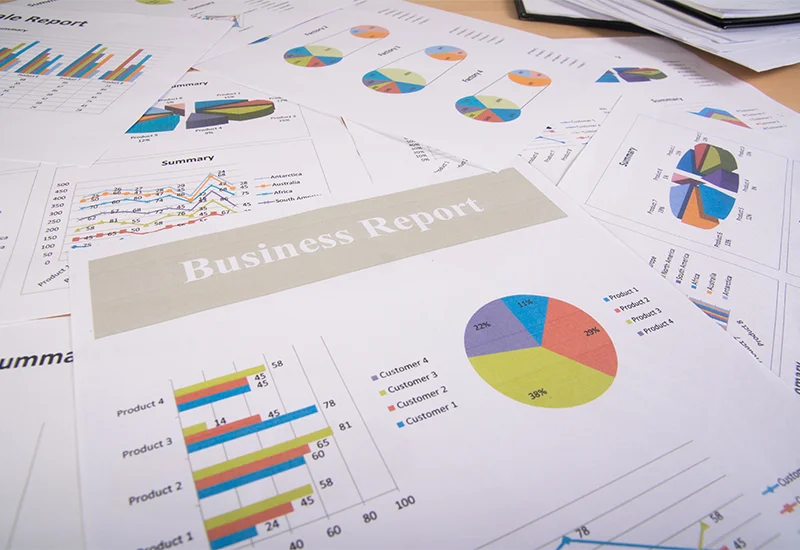5 Tax Saving Tips Every NHS GP Should Know
Just as you navigate the complexities of patient care, understanding your finances is equally important. By utilising these 5 tax-saving tips, you can effectively manage your income and maximise your hard-earned salary. From claiming allowable expenses to exploring pension contributions, these insights can significantly reduce your tax liability. Educating yourself on these strategies ensures that you keep more of your income and secure your financial future as an NHS GP. Read on to discover how to optimise your tax savings.
Key Takeaways:
- Explore available tax reliefs and allowances, such as the Annual Investment Allowance and the flat rate expenses scheme to maximise savings.
- Consider the benefits of utilising a pension scheme, as contributions can reduce your taxable income while providing for your future.
- Stay informed about the latest tax regulations and updates specific to NHS professionals to ensure compliance and optimise your tax position.
Unlocking the Power of Allowable Expenses
Understanding the full scope of allowable expenses can significantly lighten your tax burden as an NHS GP. These expenses encompass a range of costs incurred as part of your professional practice, from equipment purchases to education and training expenses. A savvy approach to expenses means identifying everything that qualifies for tax relief; this is where you can truly maximise your tax efficiency. Equipment used solely for your practice, professional subscriptions, and even costs incurred from running a home office can all be pooled into your calculation.
Identifying Deductible Costs
Deductible costs include various items that align with your practice requirements. You might often overlook expenses such as medical journals, medical equipment, or even costs related to maintaining your professional development. If you incur travel expenses to attend conferences or training sessions, these too fall under allowable expenses, provided they relate directly to your GP work. Keeping thorough records of all expenses is vital here; receipts and invoices should be organised meticulously to support your claims.
Maximising Your Claim Potential
Maximising your claim potential is all about detailed understanding and strategic planning. Grouping expenses that recur can yield a more sizable deduction, especially if they reflect a significant part of your practice’s operational costs. For instance, if you frequently purchase office supplies or medical instruments, consolidating these expenses into a single claim during your tax return can enhance efficiency. It’s advantageous to stay updated on changes in tax laws, as new guidelines and allowances can offer further avenues for maximising your claims.
Consider leveraging allowable expenses through careful categorisation. Each year, NHS GPs might overlook small, yet significant claims, such as the depreciation of your medical equipment or software costs vital for electronic patient records. By accurately detailing every allowable cost and ensuring all paperwork is correct and accessible, you not only improve your chances of a successful claim but also safeguard your tax position for future years. Engaging with a tax advisor familiar with the latest HMRC guidelines can provide personalised insights that further optimise your financial planning.
The Benefits of Incorporating Your Practice
Incorporating your practice can lead to numerous advantages, primarily providing you with greater flexibility in how you manage your finances. Operating as a limited company allows you to separate your personal and business finances, which not only protects your personal assets but also simplifies accounting and tax considerations. Additionally, by incorporating, you establish a distinct legal identity, which can enhance your professional credibility and appeal when seeking partnerships or treatment contracts. Many find that this structural change also facilitates easier succession planning, ensuring a smoother transition if someone else takes over your practice.
Tax Advantages of Limited Companies
Transitioning to a limited company can significantly enhance your tax efficiency. Unlike self-employed individuals, shareholders of limited companies can benefit from lower corporation tax rates on profits, which are currently set at 19% as of 2023—this contrasts favourably with the higher income tax rates that you would otherwise face as a sole trader. Furthermore, using a limited company can enable you to retain profits within the business, which you can then reinvest or draw down at a future date when it may be more tax-efficient for you.
Understanding Salaries vs. Dividends
The distinction between salaries and dividends is important for maximising your income in a limited company structure. Salaries are considered an allowable expense for the company and are subject to PAYE (Pay As You Earn) taxation, whereas dividends are paid from post-tax profits and are taxed at a lower rate. The current tax-free dividend allowance is £2,000 annually, making it an attractive option to withdraw profits from the company without facing hefty tax implications. By balancing your income between a reasonable salary and dividends, you can optimise your tax position while ensuring your contributions to National Insurance are met.
Effective financial planning involves finding the right balance between drawing a salary and paying dividends. Your salary must be sufficient to maintain any potential pension contributions and National Insurance benefits, while dividends can be a flexible tool for managing your tax liabilities. Some NHS GPs find that taking a salary just above the National Insurance threshold, combined with dividends for additional income, keeps their overall tax burden lower compared to relying solely on salary or dividend payments alone.
Making the Most of Pension Contributions
The Tax Relief Mechanism Explained
Understanding the tax relief associated with your pension contributions can greatly increase the value of your savings and reduce your taxable income. For every £100 you contribute to your pension, the government effectively adds £25 in tax relief if you’re a basic-rate taxpayer. If you’re a higher-rate taxpayer, you can claim back an additional 20% through your self-assessment, making your contribution effectively worth £125. This means that every pound you set aside for your retirement is being supplemented by state funds, significantly bolstering your long-term savings potential.
The process of claiming this relief is straightforward for you if you’re contributing through a salary sacrifice arrangement. Your employer deducts the contributions before tax is calculated, enhancing your take-home pay while simultaneously boosting your retirement fund. This seamless integration highlights the importance of considering your contributions carefully, especially as you approach retirement age, ensuring you’re maximising both your savings and the tax benefits available to you.
Strategic Contributions for Long-Term Savings
Contributing to your pension strategically can lead to enhanced financial security in retirement. As an NHS GP, you can make larger contributions during years of higher earnings, maximising the immediate tax relief you receive. For instance, if you foresee a financially prosperous year, consider increasing your contributions to capture the full benefit of additional tax relief. In doing so, not only do you lessen your annual tax liability, but you also bolster your retirement nest egg, which will pay dividends in your later years.
Another approach to consider is the ‘annual allowance’ for pension contributions, which currently stands at £40,000. If you haven’t fully utilised this allowance in previous years, you can carry it forward for up to three years. This means that in a particularly successful year or if your income fluctuates, you can funnel extra funds into your pension without incurring tax penalties. Engaging with a financial adviser to navigate these strategies can be beneficial, ensuring your pension contributions are both tax-efficient and aligned with your overall financial goals.
Leveraging Tax-Efficient Investments
How ISAs and Other Instruments Work
Your choice of investment vehicles can significantly impact your tax liability. Individual Savings Accounts (ISAs) allow you to save and invest without the burden of income tax or capital gains tax on returns. Each tax year, you can invest up to £20,000 in an ISA, spreading this allowance across a Cash ISA, Stocks and Shares ISA, or a Lifetime ISA depending on your financial goals. The flexibility of ISAs means that you can withdraw money at any time without tax penalties, making them a potent tool for both short-term and long-term saving strategies.
In addition to ISAs, consider other tax-efficient options such as Pension Schemes and Venture Capital Trusts (VCTs). Contributions to pension schemes are tax-deductible, meaning you benefit from immediate tax relief on the money you set aside for retirement. VCTs, on the other hand, offer substantial tax relief on investments, allowing you to reclaim 30% of your investment against your income tax bill while also providing the potential for capital growth. You can enhance your wealth while minimising tax liabilities effectively.
Balancing Risk and Return for Tax Benefits
Optimising your investment return while managing risk is imperative for maximising tax benefits. A diversified portfolio can help mitigate various risks associated with market fluctuations, enabling you to optimise your returns. For example, holding a mix of equities and fixed-income securities can provide a buffer during market downturns while still leveraging growth during favourable conditions. Your risk profile may also inform whether you opt for balance, with higher-risk investments such as stocks potentially yielding greater tax-free gains in an ISA.
Careful consideration of your risk appetite is fundamental in striking the right balance between tax efficiency and investment growth. Monitoring your investments regularly ensures that you stay aware of how they are performing and allows for necessary adjustments to align with both your financial objectives and changing market conditions. Effective diversification not only spreads risk but can also enhance your overall portfolio’s tax efficiency, ensuring that you maximise your returns with minimal tax drag.
Navigating the Fiddly World of Tax Reliefs and Credits
Understanding the range of tax reliefs and credits available can make a noticeable difference in your overall tax liability as an NHS GP. With the right approach, you can unlock various opportunities that directly benefit your financial situation. These reliefs come in various forms, from those specifically tied to the healthcare sector to more general provisions that any taxpayer may claim. Engaging with a skilled tax advisor who is familiar with the nuances of your profession can provide further insights tailored to your unique circumstances.
Tax reliefs can be quite intricate, but a proactive stance allows you to maximise your entitlements. Notably, specific reliefs, such as those for professional subscriptions and educational expenses, can be claimed easily if you maintain accurate records and understand the thresholds. Knowing when to incorporate claimable reliefs into your current tax strategy will enhance your financial acumen and ensure that you’re not leaving any potential tax benefits on the table.
Common Reliefs Every GP Should Explore
Several reliefs are commonly available that you should actively consider. For instance, if you’re a member of a professional association, the costs associated with your subscription may be allowable. The same principle applies to educational courses directly linked to your work, which can also be claimed. Each of these has specific criteria, so it’s beneficial to check whether you qualify before filing your taxes.
Additionally, the Annual Investment Allowance (AIA), which allows you to claim deductions on specific capital expenditures, is frequently overlooked. This deduction can extend to the purchasing of equipment or other eligible assets. By diligently exploring these common reliefs, you can create a more effective tax strategy that aligns with your professional activities and financial goals.
Declaring Charitable Donations for Additional Deductions
Many GPs contribute to charitable organisations—not just because they are passionate about a cause, but also to leverage the tax benefits associated with such donations. Tax relief on charitable donations can be significant, primarily if you opt for Gift Aid. Under the Gift Aid scheme, charities can claim back 25p every time you donate £1, and as a higher-rate taxpayer, you can claim back the difference between the higher rate and basic rate on your tax return.
Incorporating charitable donations into your financial planning not only aligns with your values but also offers tangible tax benefits. Ensuring that you declare your donations properly will enable you to maximise your relief. This might require slightly more paperwork, such as keeping receipts and confirming you have given your consent for the charity to claim Gift Aid, but it pays off handsomely in terms of tax savings.
More specifically, if you donate more than the basic rate of tax, you can claim additional relief through your Self Assessment. If you are in the 40% or 45% tax bracket, declaring these donations ensures that you’re not just contributing to your chosen cause but also reducing your effective tax rate. Therefore, each donation effectively reduces your overall tax liability, empowering you to make a difference while keeping your financial planning robust.
To wrap up
Taking this into account, implementing effective tax-saving strategies can significantly enhance your overall financial position as an NHS GP. By understanding your allowances, considering the implications of your employment status, and utilising available tax reliefs, you can optimise your tax situation and keep more of your hard-earned income. It is vital to regularly review your financial circumstances and consider how these tips can be integrated into your personal tax planning to ensure you are making the most of what is available to you.
Additionally, staying informed about changes in tax legislation and seeking professional advice when necessary will further empower you to maximise your tax efficiency. With the right approach, you can navigate the complexities of your tax obligations effectively and secure a more stable financial future. By taking proactive steps in your tax planning, you can focus more on what you do best: providing exemplary care to your patients.
FAQ
Q: What are some effective ways for NHS GPs to reduce their tax liabilities?
A: NHS GPs can consider several strategies to reduce their tax liabilities. One effective method is to maximise contributions to a pension scheme, as these contributions can often be deducted from taxable income. Additionally, claiming allowable business expenses, such as medical equipment or professional subscriptions, can lower taxable profits. It is also beneficial to utilise tax-efficient savings or investment accounts, such as ISAs, and to review property ownership structures if involved in lettings.
Q: How can NHS GPs benefit from understanding the tax implications of their income structure?
A: Understanding the tax implications of how income is structured can significantly benefit NHS GPs. For instance, being aware of whether income is classified as salary or self-employed earnings can affect tax rates and allowable deductions. By optimising the structure of income—such as considering partnerships or limited companies—GPs may find ways to lower their overall tax burden, thus enhancing their financial situation.
Q: Are there specific tax reliefs available to NHS GPs that they should take advantage of?
A: Yes, there are specific tax reliefs available to NHS GPs that can provide substantial financial benefits. For example, GPs may be eligible for ‘flat rate’ expenses for certain costs, which simplify record-keeping and still allow for tax relief. Moreover, capital allowances on medical equipment can provide tax relief on the purchase of significant items. Engaging with a tax advisor familiar with NHS provisions can help GPs identify and claim all eligible reliefs efficiently.













